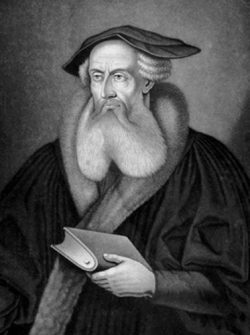Heinrich Bullinger (1504-1575)
Heinrich Bullinger was a theologian and a Reformer who supported the Reform Movement in Zurich after Zwingli’s death in 1531. He also played a key role in spreading the Protestant Reform Movement around Europe.
The influence of the Reform Movement
Heinrich Bullinger’s father was Dean at Bremgarten, in the Swiss canton of Argovie, where Heinrich was born in 1504. He was destined for the priesthood and studied at Cologne University from 1519 to 1522. He read the writings of Erasmus, Melanchthon and Luther; which gradually led him to convert to the Reformed Protestant Church.
In 1523, he taught Bible exegesis at the Cistercian monastery in Kappell, in the Zurich canton, but did not take his vows. He also studied Greek and Hebrew, met Zwingli and studied his writings. In 1529 Bullinger married Anna Adlischweiler, a former nun. He became a pastor in Bremgarten, his home-town, succeeding his father who had been dismissed for spreading Reformed Church doctrines.
Zwingli's successor in Zurich
In 1531 Zwingli was killed while acting as a chaplain during the battle of Kappel. The inhabitants of Zurich were defeated by the Catholic cantons. The defeat meant that the canton of Argovie had to return to Catholicism, and Bullinger and his family had to leave and take refuge in Zurich. He was approached by Berne, Basle and Zurich, but he chose to stay in Zurich where he was appointed chief pastor of their Collegiate Church.
He strengthened the Reformed Church in the city and in the Zurich canton, though it seemed to falter under Catholic pressure after Zwingli’s death. Like Zwingli, he was opposed to the Anabaptists but did not persecute them, refusing to use violence against those who did not share his beliefs.
He refused to countenance total separation of the Church from secular powers, defending freedom of preaching and opposing supervision of the Church by the State. In 1532 he succeeded in the establishment of a mixed committee of magistrates and pastors to oversee ecclesiastical matters.
Bullinger was an outstanding preacher – preaching two or three times a week – but also a historian. In the Chronique de Zurich (Zurich Chronicles) he told the story of the city from Roman times until the Reformation. He wrote a biography of Zwingli and had his writings published.
The theologian who spread the Reform Movement throughout Europe
Bullinger developed a theology of alliance in his De testamento seu foedere Dei unico et aeterno, in 1536.
In Zurich he opened his home to numerous Protestant refugees from England and Italy, and to all those who asked for his help.
In Zwingli’s wake he refused to compromise with Luther on the matter of the Eucharist, maintaining the symbolical but not the actual presence of Christ.
He endeavoured to preserve unity among Reformers thanks to the 1549 agreement with Calvin concerning the Eucharist; the Consensus Tigurinus (Consensus of Zurich). In 1566 he wrote a collection of doctrinal theses, the Confession helvétique postérieure (Second Helvetic Confession), adopted by most Protestant Swiss cantons and which became a benchmark for the Reformed Church in Europe.
Bullinger had tremendous influence through his preaching, his Bible commentaries and his numerous theological letters – over 12,000 letters to various leading figures, such as theologians, pastors, princes and politicians. He particularly influenced the Puritan movement in England. His major work was a treatise on pastoral theology, Les Décades (The Decades), first published in Latin.
His wife and many of his family died during the plague epidemic between 1554 and 1556.
He died, aged 71, in Zurich after a 44-year ministry in the city.
Associated notes
-
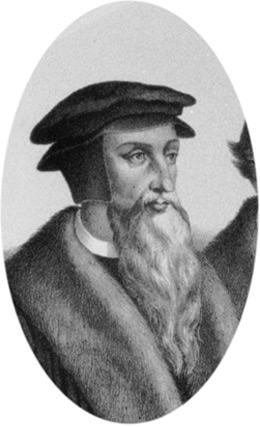
The Calvinist Reformation in 16th century
The Reformation later known as Calvinist movement was launched by several reformers and spread to many parts of Europe, from Zurich and Geneva. -
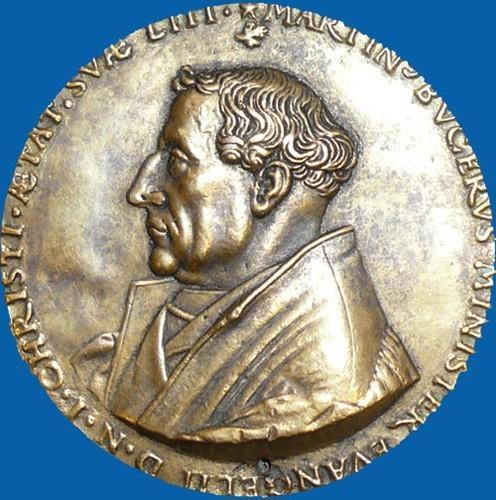
Martin Bucer
-
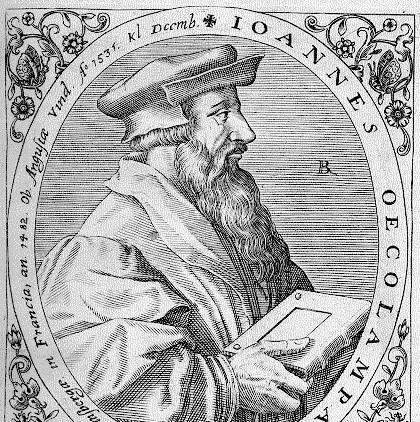
Johannes Oekolampad (1482-1531)
Oekolampad was one of the first Reformers. He brought the Protestant Reformation to Basel and then spread it in Southern Germany. Like Zwingli, he belonged to the Reform Movement. -
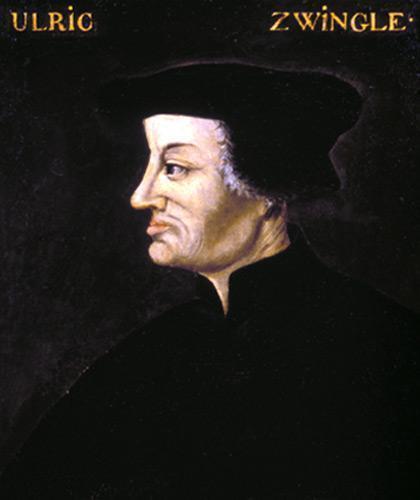
Ulrich Zwingli (1484-1531)
Zwingli, a pastor and theologian, based the Reformation on Bible study. In his opinion the Reformation comprised fighting social injustice. -
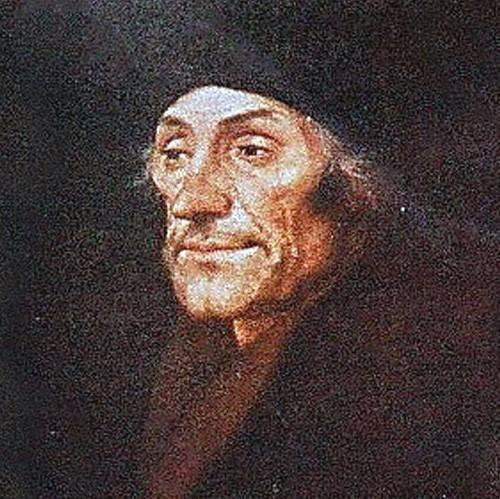
Erasmus (1469-1536)
Erasmus was one of the main figures of 16th century Humanism ; he was cultured, tolerant and ahead of his time because he was European in outlook. He prepared the first... -
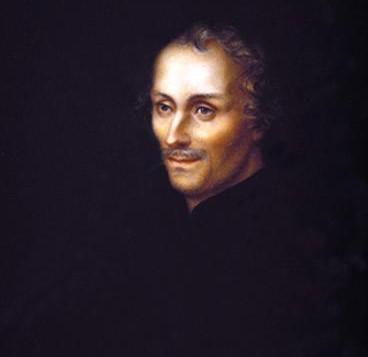
Philipp Melanchthon (1497-1560)
Melanchton was a humanist and a theologian who adapted Luther’s ideas. His attempts to reconcile the different reformation trends failed.

